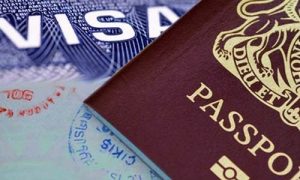
What is the FCO?
The Foreign and Commonwealth Office is a government department promoting the United Kingdom’s interests overseas and supporting UK citizens and businesses around the globe. More specifically – and more importantly for student travellers – the FCO offers support before and during your time abroad to help you have a safe and enjoyable trip. It’s therefore important to have a clear idea of what the FCO can (and can’t!) do for you.
The FCO also offers a travel alert service. Make sure you active the alert for the country you are travelling to
What can the FCO do for you on your travels?

The FCO can issue you with an emergency travel document
BUT:
The FCO can’t make travel arrangements for you or help you enter a country if you do not have a valid passport or necessary visas
Travel tips:
- Research your destination beforehand to make sure you have completed any necessary paperwork and obtained the correct visa.
- Check the validity of your passport, bearing in mind that some destinations require your passport to be valid for six months after the date you travel.
- Make a note of your passport number and consider taking a photocopy with you and/or storing it online using a secure data storage site.
- Keep your passport in a safe place and be wary of pickpockets.

The FCO can provide information about transferring money
BUT:
The FCO can’t pay any bills or give you money
Travel tips:
- Take enough money to cover emergencies and unexpected delays.
- Consider taking more than one means of payment with you (cash, debit card, credit card, etc.) and keeping some money in a separate place so you always have a backup.
- Beware of pickpockets and don’t openly display your wallet.

The FCO can give you a list of local lawyers, interpreters, doctors or funeral directors
BUT:
The FCO can’t give you legal advice or translate documents
Travel tips:
- Consider taking your mobile with you or renting one while you’re away – store useful numbers such as the local police and the nearest embassy or consulate. Do also keep a hard copy of these numbers handy too, in case your phone is stolen!
- Find out where the nearest British embassy or consulate will be – check what services they offer and their opening times.
- Invest in a travel guide and foreign language phrasebook if necessary.

The FCO can contact you if you are detained abroad, and can also contact friends and family back home for you if you wish
BUT:
The FCO can’t investigate crimes or get you out of prison
Travel tips:
- Find out about local customs and dress, behave accordingly and obey local laws (there may be serious penalties for breaking a law that might seem trivial at home).
- Be careful when taking photographs, videos or using binoculars – such activities may be misunderstood, especially near military installations.
- Make sure you fill in the emergency contact details in your passport – this will make it much easier to contact your next of kin if necessary.

The FCO can provide help if you have suffered rape or serious sexual or physical assault, are a victim of a crime, are ill or in hospital
BUT:
The FCO can’t get you better treatment in hospital or prison than is given to local people, although they can raise concerns if treatments fall below internationally recognised standards
Travel tips:
- Before travelling, make sure you purchase appropriate insurance that will cover you for any activities you are likely to undertake, including extreme or water sports.
- If you’re travelling within the European Economic Area (EEA) don’t forget your free European Health Insurance Card.
- Research the health risk on the NHS travel health information page before travelling, and if necessary visit your GP or a travel clinic.
- If you have a pre-existing medical condition, make sure you take enough medical supplies for the duration of your visit and any unexpected delays. Depending on the medication and how long you’re travelling for, you may need document or a licence to travel with medication. Check out the FCO’s information here.
- Tell family and friends where you are going and leave them your contact details, insurance policy details and your itinerary.
- Remember you can call 112 to contact the emergency services in any EU country.
The FCO also provides additional guidance for the following specific groups of travellers and types of holiday: travellers with mental health needs, travellers with a disability, lesbian, gay, bisexual and transgender travellers, gap year travellers, adventure holidays and volunteering, winter sports holidays, travelling by sea or river, travelling during Ramadan, visiting friends and family abroad.
More information, including travel checklists and specific country guides, can be found on the FCO Travel Aware website.
![]() @FCOtravel
@FCOtravel  Fcotravel
Fcotravel ![]() ukforeignoffice
ukforeignoffice
Safe travels, everyone!

